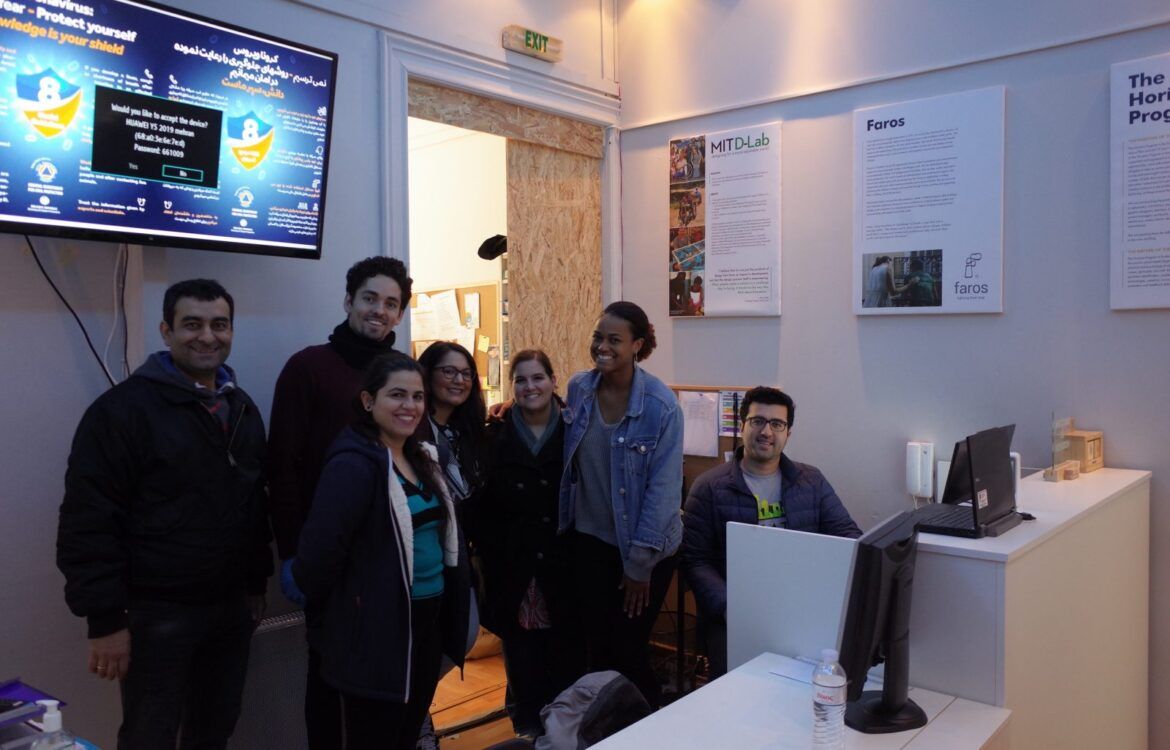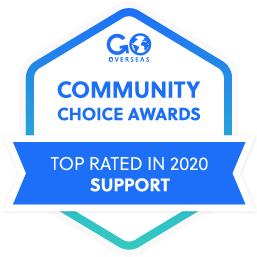
Spring ’20 Volunteer Interviews: Teaching to Refugee Teens with Faros
Even though the spring ’20 semester ended early due to COVID-19, students still had productive and meaningful volunteer experiences during their time in Athens. CYA has conducted interviews with volunteers from the spring ’20 class, and we will be publishing some of them on the CYA Blog. Jayna Jones taught English to refugee teens with Faros, where she gained a new understanding of Athens and its many residents.

Jayna with other volunteers and employees at Faros
- Do you think you gave back to the community and how?
I think the community that I was in, and the young refugee teens that I was teaching were impacted by my presence although only for a short while.
- How did volunteering enrich your study abroad experience?
I didn’t start volunteering until I felt adjusted in my neighborhood, but my only regret is that I didn’t start sooner. I think that being able to engage with a vulnerable population, and stretch beyond myself to teach English (something I hadn’t formally done previously) was certainly beneficial to my development as a person while abroad.
- What was your favorite moment from volunteering? And the most meaningful?
I found that the most meaningful part was reassuring the teens that when they made a mistake they weren’t stupid, and working with a colleague to have them learn sentence structure by reading empowering sentences. For example we were talking about the difference between “is and are” and one sentence for them was “You boys are smart”. Although it seems simple, once they read it out and wrote it down, it seemed as though their confidence carried through to other exercises.
- How did you decide to volunteer? How did CYA help you find the best fit for you?
I am generally a very scheduled and busy person at my school back in the States, and so I found that I was actually getting bored with all the free time I had. So I reached out to Nadia to see if I could still get involved with any volunteer organizations. She first assessed my schedule and how often I was willing to go, and we found two organizations that could match. It started off with just reaching out to the director to see if I could observe what they do, and I didn’t look back from that point.
- In what aspect is international volunteering different than volunteering in the US?
It is surprisingly more different than you’d expect. In the US you’re aware of the political climate because you live it every day, there’s a common language typically between those you’re helping, maybe even a similar identity. However, in Greece as someone who doesn’t speak the language, or know all of the inner workings of people and the refugee crisis, there are positions of privilege that you have to recognize before working to help others. I think that once you get down to your role it becomes easier to find common ground, but just be aware that there are more differences than you might expect in America.
- Did volunteering encourage you to explore different parts of Athens/Greece?
Yes, I would not have explored the section of Athens I was volunteering in otherwise. Actually, the first time I used the bus was because I needed to navigate to the volunteer location. It also added a sense of autonomy to explore Athens in a structured way on my own and have a way to meet more people outside of my friend group.
- How did you balance volunteering with your work for classes?
It fit in seamlessly! Nadia listened so well when I explained the level of commitment I was prepared to do, and I blocked off time and stayed organized to keep on track academically.





